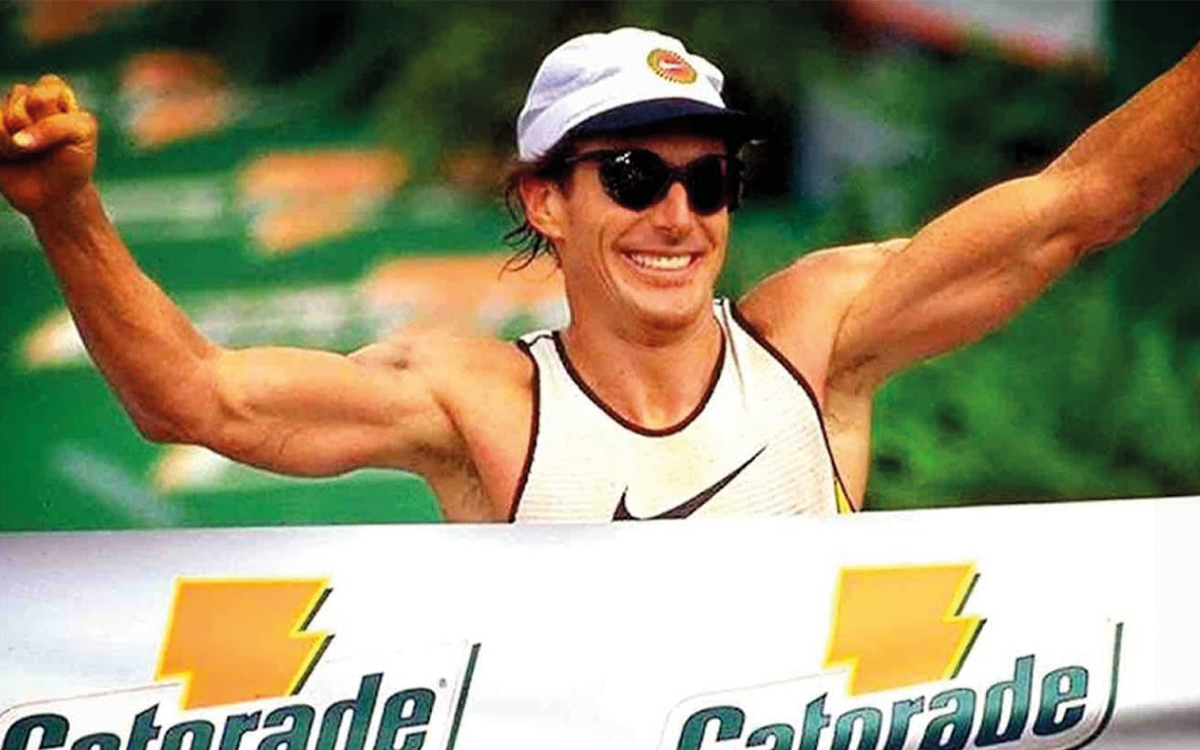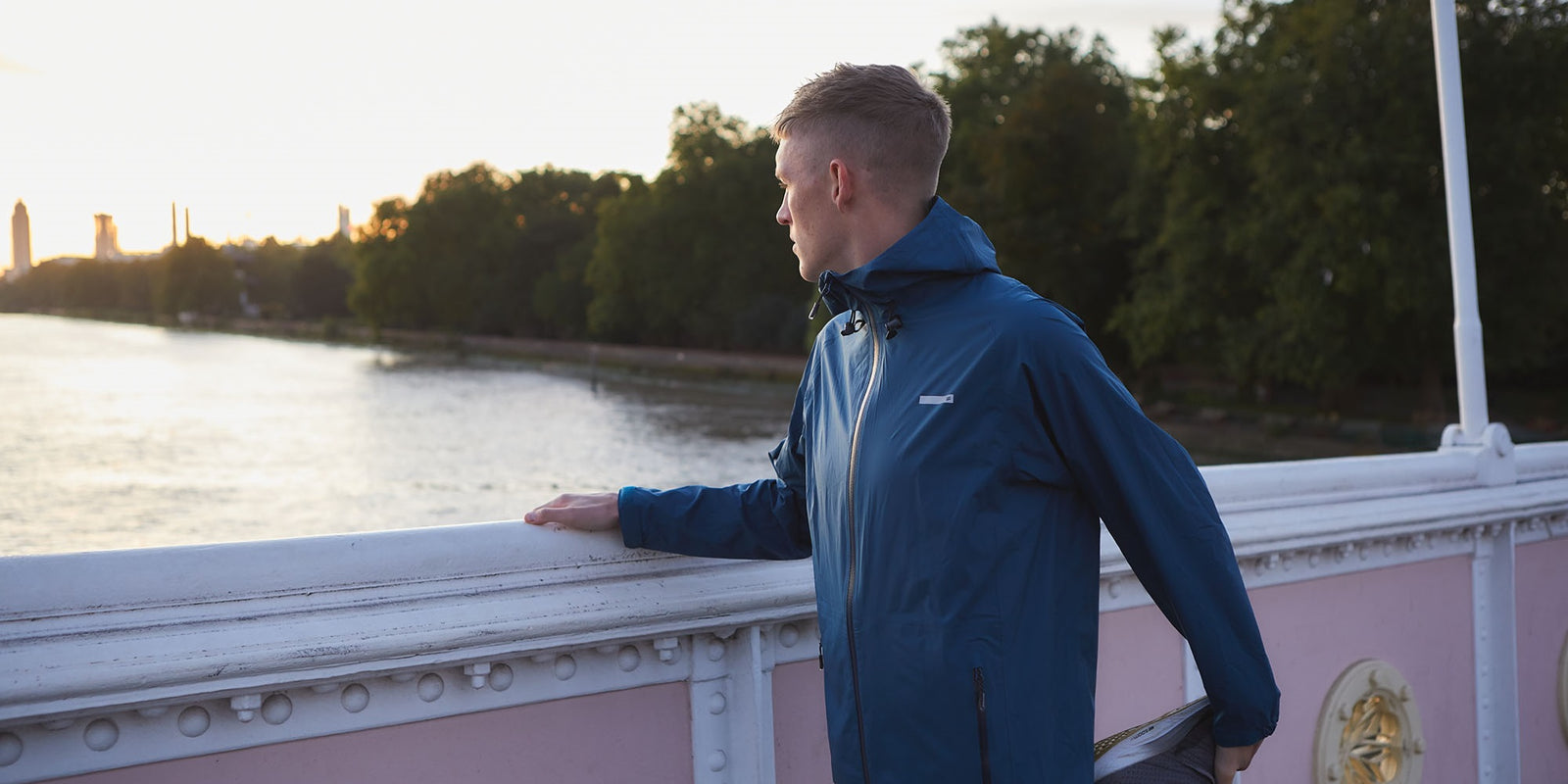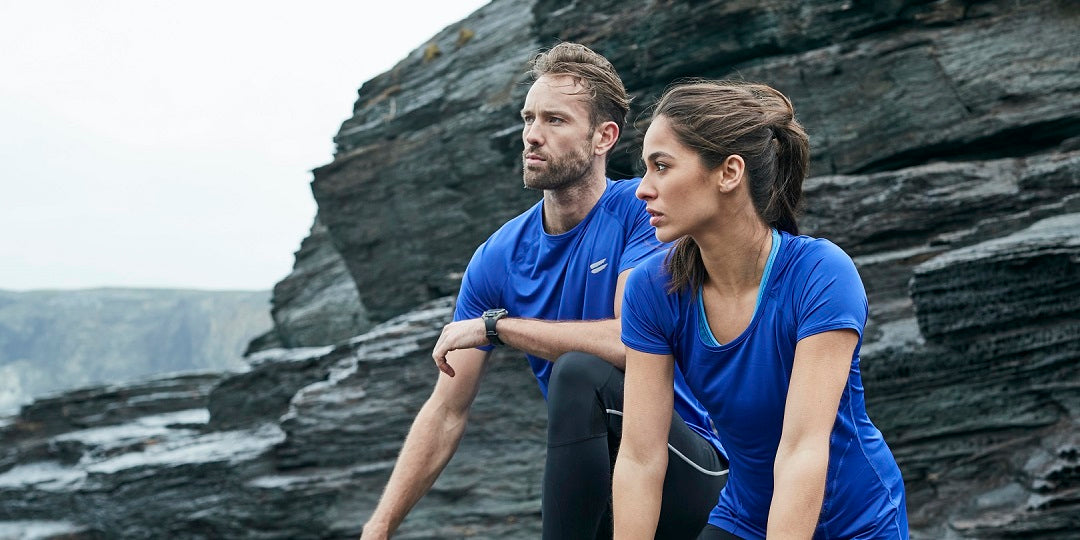Often referred to as one of the greatest endurance athletes of all time, 6 x Ironman world champion Mark Allen needs little introduction. A powerhouse on the international triathlon circuit for over two decades, he held a formidable 21 race victory streak from 1988-1990 and his nail-biting world championship races against fellow Ironman champion Dave Scott remains enshrined in sporting legend. While his multiple world champion status is an undeniably incredible achievement, it was his determination to make that dream a reality that makes his story truly extraordinary.
Now one of the sports most respected coaches, the Tribe Sports team were delighted to be able to speak personally with Mark from his home in sun soaked California. From how a 110-year old shaman played an unlikely role in that iconic 1989 victory to the agonising blisters that nearly derailed the closing miles of his race, he spoke to us with refreshing honesty about his challenging journey to that first world championship title over 30 years ago and the power of persistence.
‘I first saw the Ironman event on TV in February 1982,’ says Mark: ‘It was a very dramatic finish, which ended with Julie Moss crawling across the finish line. I’d never heard of triathlon at that point and didn’t know anything about what Ironman involved.’

‘I remember the announcer was talking about the distances these athletes were covering and I thought to myself ‘How many days is it going to take these crazy people to do this?’ he laughs: ‘Then I heard that they started at 7am and had to finish by midnight. I thought they were completely nuts - surely there was no way that the human body could achieve that!’
With a background as a swimmer - ‘A very mediocre swimmer, I must add,’ he laughs - he was immediately taken by the endurance aspect of the Ironman. ‘About 2 weeks after I’d seen it on TV, I knew that I just had to give this race a go,’ he says. As it was still a relatively new event, he was able to secure a starting place with surprising ease: ‘I literally called up the Ironman office, they sent me an application form and 8 months later I was on the starting line - completely scared to death and wondering what I’d got myself into!’
Thanks to his swimming background, Mark quickly made his way to the front of the race alongside the man everyone wanted to beat - 1980 Ironman world champion, Dave Scott, who was hoping for his second title that year. ‘I was hoping I’d maybe finish in the top 100, so I thought it was completely mad to be racing alongside Dave,’ says Mark: ‘I’d never spoken to him before, so during the bike ride I pulled up next to him and said ‘Hey Dave, when we’re done with the bike ride, do you want to go for a run?’ and he just gave me this incredulous look and said ‘Who are you?!’ before speeding off!'
Just as Mark attempted to follow, a horrendous crunching sound came from beneath his feet. ‘I looked down and my derailleur had completely broken off, so that was my race done,’ says Mark: ‘I ended up with a DNF that year, but getting to race alongside the best guy in the world was really where my dream was born.’
What would follow over the next 7 years was a remarkable journey peppered with soaring highs and crushing lows, as Mark attempted to reach his goal of winning the Ironman world championship. Despite some close calls - including a third place finish in 1983 - he struggled to unlock the right balance to secure the ultimate victory. ‘There were races I felt I was running quite conservatively, like in 1983, and then some races where I went too hard and completely fell apart,’ he says: ‘During one race my body started shutting down and I ended up having to walk a lot of the marathon section - I actually ended up in hospital that year with internal bleeding, so that was tough to come back from.’
After each year passed with another fresh disappointment, he began to question if he was cut out for winning the race at all. ‘My friends and family were urging me to just do the races where I had already proven I could win - like in Nice and Australia,’ says Mark: ‘I was so close to listening to them. How many times was I going to beat my head against the wall for a dream and not get there? You may not achieve every dream that you set out for in life, right?’

Despite coming to the decision in January 1989 that he wouldn’t return to race the event again, it wasn’t long before he started to feel the pull of the Big Island, luring him back once more. ‘I decided that if I was going back, it needed to be for a different reason. I decided that I wanted to have the best race I possibly could - to not be conservative, but to not fall apart. If I could achieve that, then where I finished didn’t matter. Only one person can win a race, but that doesn’t mean only one person can gain a lot of fulfilment and value from completing it.’
After so many failed attempts, Mark admits he’d become intimidated by the event itself. ‘It’s an intense environment. I kept trying to push that away and try and make the race somehow easier than it was going to be. I had to understand that if I wanted an easy race, I shouldn’t be going to Hawaii and doing the Ironman world championships!’ he laughs.
With a refreshed mindset, the morning of the 1989 Ironman dawned bright and clear. At 6.55am, Mark was floating in Kailua Bay waiting for the race to begin, when out of the corner of his eye he spotted Dave Scott. ‘I backstroked over to where he was warming up, pretending like I didn’t realise he was there,’ smiles Mark, ‘I told him to have a great race, shook his hand and told myself ‘Just follow Dave today.’ I had enough experience by then to know not to try and set the pace, but to keep right by him as best as I possibly could.’
Staying within a couple of strokes of Dave throughout the entire swim, Mark maintained the same pace on the bike. ‘There were points where I could have pulled away, but I made a very clear decision not to do that - it hadn’t worked before, so I wasn’t going to do it again,' he says: 'I didn’t even want him to have a sense of how I was feeling, so every time he looked back at me I’d make sure I put my head down and looked in the other direction - it was like a very intense game of cat and mouse!’
Exiting the bike section shoulder to shoulder, Dave set off on the run at a blistering pace. ‘He was doing sub 6 minute miles, which seemed like absolute suicide to me,’ said Mark, ‘I thought it was absolutely nuts, but I just knew I had to stick with him. My logic was if I ended up completely blowing up, at least it would be alongside the best guy in the world.’
As the pair headed out of town into the middle section of the marathon, Dave started to settle into what Mark calls a ‘more reasonable’ pace. ‘I could tell he was trying to break me. I was trying to gauge if I was strong enough to pull away, but had to keep telling myself just to stay next to him. I was really fighting my instincts to try and get out in front.’

‘It became clear that there was no trick or surge that I was going to be able to do that was going to break him mentally. I could feel his resilience and strength - and honestly, it was pretty intimidating. I realised in that moment that if I was going to win, I was simply going to have to flat-out outrace him. There was no other way.’
As the miles kept coming, Dave started to increase his pace - and Mark began to struggle. ‘My energy was fading,’ he says: ‘It was becoming so hard to match his pace and my mind was going all over the place with completely unhelpful thoughts like: ‘Dave is so strong, he’s going to win again, I should have trained harder, I want to quit!’ Telling yourself you’re a loser mid-race does not give you the strength you need to complete it successfully!’
Struggling to grasp onto even one positive thought, Mark found it increasingly difficult to keep up with the intense pace Dave was setting. ‘In the intensity of that moment, my mind just went completely quiet. That’s when something completely unpredictable happened, that probably doesn’t really fit into the paradigm of what takes place during an Ironman!’
Two days earlier while in his hotel room before the start of the race, he had been flipping through a magazine when one particular image caught his attention. ‘It was a photo of a 110 year old Huichol shaman - Don Jose Matsuwa - and his adopted grandson, Brant Secunda. They both had this look on their faces which was peaceful, yet powerful. As an athlete, that is what you are trying to embody in your best moments - that sense of peace, calm and steadiness, but also strength, hope and the ability to manage difficult situations.’
‘During that intense moment of struggle in the race, where my mind had gone quiet, Don Jose’s image just came flooding back to me. I could feel the strength, power and sense of calm just from that one image I’d seen. I could feel my whole body relax, like screws had been un-tightened. Suddenly, it got easier to keep the pace with Dave - and I realised that I could actually win this. It was the first time I’d felt it and really truly believed it.’
Despite the revelation, Mark had another battle to contend with, having developed painful blood blisters on both feet which had now burst. ‘Every time my feet were hitting the ground was just agony,’ he says: ‘My shoes had this reddish tinge to them from the blood and I had this constant internal battle of ‘I know I can win this, but I really don’t think I can take another step!’ Just because you know you can do something, you still have to take all those painful steps to take it to completion.’
Knowing he was stronger on the uphill sections while Dave was stronger on the downhill sections, Mark summoned the strength to keep going after spotting his opportunity as they approached the town of Kona. ‘There’s one long uphill section and then a big downhill on the other side. We both sensed this would be where the break would take place.’

As they both reached out to grab one last glass of fuel at the final water station, something switched inside Mark. ‘Dave had got in ahead of me and had grabbed his glass, but just as I was coming in to grab mine something in me was like ‘Okay, GO!’ and it was like I had been shot out of a cannon.’
Pulling his hand back, Mark started sprinting as fast as he could up the hill - ‘As fast as you can sprint at the end of an Ironman!’ he laughs - and within those couple of seconds had managed to put a couple of metres gap between himself and Dave. ‘If you watch the footage back from that moment, you can see the look of surprise in his face,’ says Mark: ‘He’d always been the strongest in those closing miles of the marathon - and now I was pulling away from him in his home territory.’
Reaching the top of the hill first, Mark knew the win still wasn’t secure, with the downhill section still to tackle. ‘I knew I absolutely had to get to the bottom of the hill before him if I was going to win,’ he says: ‘I went as hard as I possibly could downhill without stacking it, made that lefthand turn on the flat, took one final look behind me - and I couldn’t see him. At that point, I knew I had it.’
Running the final mile to the finish line, he finally felt his emotions overcome him. ‘You have to stay so focussed throughout the race for so many hours, but I knew that I was finally about to win after all of those attempts. The tears were coming down my face and there were thousands of people cheering me on. I think really they were cheering the fact that it had been such a journey over the last 7 years.’
With only 58 seconds separating their finishing times, Mark improved his PB by 30 minutes that day, while Dave broke his previous world record by almost 18 minutes. ‘We were together for about 8 hours of racing in total and it was only in the last 2km of the marathon that I started to pull away - it was incredibly close,’ he says: ‘It was really like the passing of a crown. Dave had won 6 Ironman world championships during his career and 1989 was the first of my 6 Ironman wins.’
Describing the elation he felt after finally winning, Mark admits he would wake up in the morning for months afterwards thinking he’d dreamt the whole thing. ‘It had been such a long held ambition of mine, that it almost didn’t seem real once I’d achieved it,’ he says: ‘I found myself getting a little cynical about it - like why did I have to go through all those hard years beforehand? I realised there were so many skills I had learnt about how to keep going when things get tough over those years of perceived ‘failure’. If I had not learnt those lessons, I would not have won. We all want life to be on our timeline, but it doesn’t always work out that way.’
Reflecting on his achievements, Mark credits mental resilience as a key skill he had to develop to be successful. ‘It was something I was working on from the very start,’ he says: ‘Everyone goes into an Ironman knowing it’s going to be tough and that they’ll face moments of personal challenge - but as an athlete, you need to be putting in training to help you cope with those moments. It’s no good just training the physical side and hoping you’ll be able to deal with the mental side when it comes to it - they’re completely intertwined disciplines.’

Another skill Mark cites as key to his success is his ability to continue to give 100%, even when functioning at a severely reduced capacity. ‘The year I ended up in hospital, I was walking the marathon section and knew that Dave was going to end up coming past me. Rather than giving up, I knew I had to keep giving it 100% - even if my 100% in that moment was only 20% of my usual output. So if I was having to walk, I would be walking as fast as I could. That full engagement in the race - no matter what - was such an important skill and enabled me to ride out those tough moments and ultimately come out as a stronger competitor.’
Over the years, there are two pieces of advice that have stuck with Mark and shaped his journey as an athlete. ‘The first was that if you’re sick, injured or burnt out and still training, you’re not getting any faster,’ he says: ‘One of the main goals should certainly be to test yourself, but make sure you build in enough time for recovery. Secondly, you’ll find you forget the time or the place, but you won’t forget the experiences you had with the people there with you and the things you learnt in those tough moments that empowered you in other aspects of your life.’
And what about his own personal bit of advice to offer up? He pauses for a moment, considering his answer, before smiling warmly: ‘Be patient, be kind to yourself - especially if the journey is taking longer than you might have initially thought. Use sport as a journey and not as a destination. Use it as a way to practice living better, as opposed to just accumulating trophies and PBs - those won’t have the same meaning over time.’
Mark owns and runs Mark Allen Coaching and coaches athletes all around the world. To find out more visit Mark Allen Coaching and Fit Soul, Fit Body.






David Reid
September 22, 2022
Impressive and informative photos and interesting that he has turned his knowledge into coaching and teaching others !